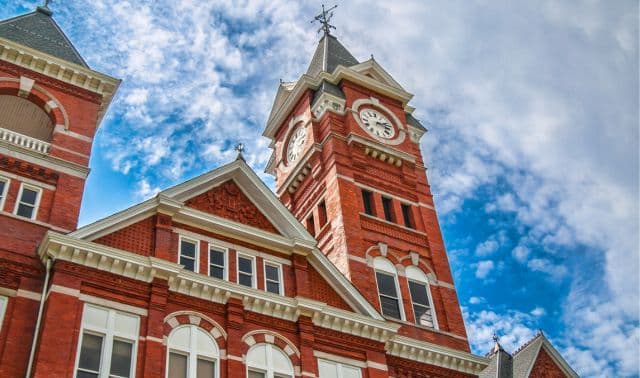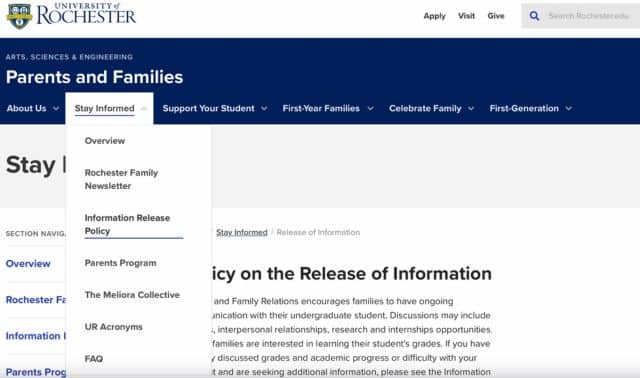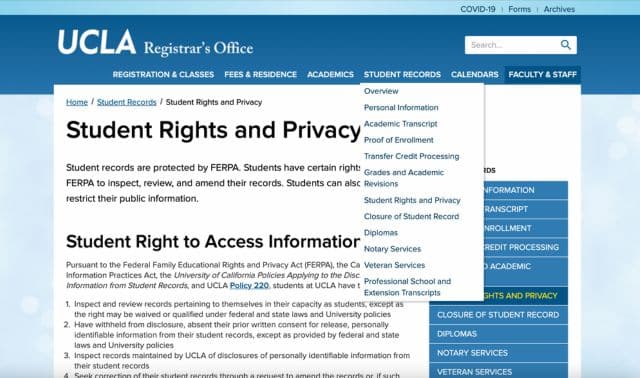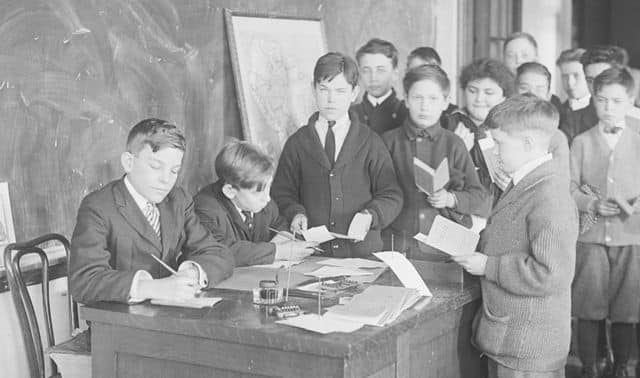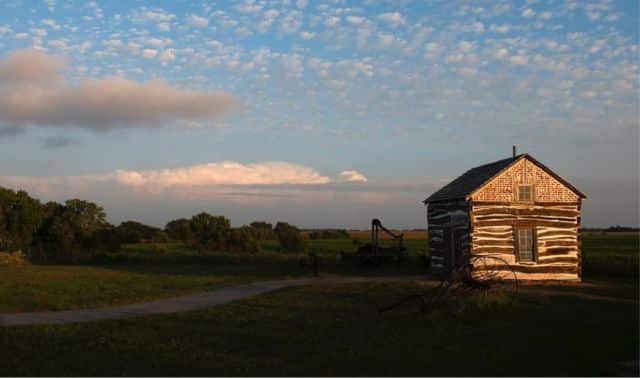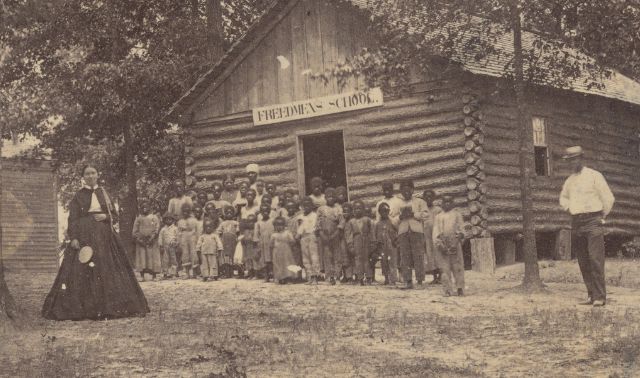Betz Richards wasn’t sure what to expect when she requested information about her mother’s college years from Ashland University in Ohio. But to her delight, the school sent a copy of her deceased mother’s academic record and a newspaper article with a photo of her collegiate singing group.
“I learned that my mother was never in college for a degree,” says Richards. “I think she just wanted to sing with their touring choir.” Richards requested records from her father’s college as well, and received copies of the biographical updates he sent the alumni office throughout his life.
And as Richards found out, the record might even hold post-graduation information, such as the alumni updates her father wrote.
Richards’ story illustrates why it’s valuable everywhere for your ancestors’ records, even if that means scaling that ivory tower. Whether ancestor attended raucous parties and participated in Greek life or just kept their nose in the books in quiet of the library, they likely created at least four years’ worth of records. These records can be handy for your genealogy research.
What information about your ancestors—particularly your own grandparents and parents—might be languishing in dusty university files? What other records may teach you about an ancestor’s school days? Here’s what you can find by studying your relatives’ college days and how you can go about obtaining those records.
What is a Student Record, and What Does It Contain?
When you were in school, you might have heard stern warnings about your “permanent record” and what may or may have not been in it. While there probably never was a record condemning your every classroom misstep, your school likely kept individual records of all of its students. This is true even at the college level.
While the contents may vary from school to school and even student to student, the average student record contains:
- The student’s birth date
- The student’s home address (both current address and any past addresses)
- The names of the student’s parents
- Current course load and class schedule
- Report cards and progress reports
- Rewards and recognition for academic achievement
- Previous schools attended. If any, transcripts from said schools
- Volunteer and work experience
- Extracurricular obligations (i.e., sports, newspaper or yearbook staff, class government, etc.)
- Religious affiliation (if any)
Some students’ records might also contain notes and materials from teachers, counselors, and other mentors—for example, a letter of reference or graded essay.
Needless to say, school records can reveal a lot about who your ancestor was both as a student and as a person. Of course, before you can review your ancestor’s school records, you need to gain access to them.
How Can I Access Student Records?
The Family Educational Rights and Privacy Act of 1974 (FERPA) governs access to student files in the United States. FERPA applies at any postsecondary institution that receives funding from the Department of Education (almost all of them). In most cases, the law restricts information to the student and parents, if parents list their student as a dependent on federal tax returns. (Canada has a similar privacy law; other laws may apply internationally. Ask at the university registrar’s office or its equivalent.)
The good news for genealogists: FERPA only applies to living students, according to the Family Policy Compliance Office at the US Department of Education. When a student is deceased, “an educational agency or institution may disclose such records at its discretion.”
The key word here is may. “Although a college may release the records, they don’t have to,” says Richard Rainsberger, a retired university registrar and part-time consultant on FERPA. Rainsberger also got records from his parents’ alma maters.
“Some of the older transcripts (1920s to 1960s) have much more demographic information than current transcripts,” says Rainsberger. “For example, my mom was valedictorian of her high school class and that appears on her 1934 Kent State [University] transcript. Now, however, that item is not on any college transcripts with which I am familiar.”
Rainsberger offers a few tips for getting your ancestor’s college files:
1. Research the school’s privacy policy
There are over 4,000 colleges and universities in the United States alone, and all of them have their own unique privacy policies that detail what information they can release about a student. Therefore, if you know what college you ancestor attended, you will want to research their privacy policy carefully before contacting anyone.
You can usually find this information simply by looking at the university’s website. It will usually be worded as “Release of Student Records Policy” or “Policy on the Release of Information.” Where on the website you find the policy will vary from school to school. Some put it right out in the open on the homepage, while others may require you to explore a few links on the website’s menu before you find it. But some common places to look many include About Us, Students, Records and Registration or Registrar.
Some larger schools might even have a whole separate website solely for the registrar’s office, as you will see below with UCLA.
If you are stuck and not sure where to find accurate information about your ancestor’s alma mater, College Navigator (from the National Center for Education Statistics) might be able to guide you in the right direction. This extensive directory provides links to thousands of colleges and universities in the US.
2. Be prepared to provide crucial information and documentation
If your ancestor’s college is willing to share their records with you, they will probably want to confirm that you are who you say you are. With that in mind, be ready to provide some information and documentation about your ancestor. Think birth date, parents’ names, years of attendance, even proof of death.
3. Ask for specific information
While it may be tempting to go to the registrar office and ask for all the files you can get your hands on, it may be better to create a list that outlines specifically what you are looking for (e.g., transcripts, course schedules, etc.) That way, the registrar can more easily assist you and tell you what information you need to provide to get the information you seek.
After that, says Rainsberger, it’s really up to the school whether to grant the request. “They may or may not readily comply.”
Other Resources to Help You Find Your Ancestor’s College
The official student file isn’t the only place to learn about an ancestor’s college years. School histories, online or in print, might give general information about the years your ancestor attended.
Here are other resources and strategies you might seek out to learn more about your ancestor’s college experience:
1. Check census records
If your ancestor attended a typical 4-year university, they may have lived on campus or at least very close. You can find this information by viewing any census records that cover your ancestor’s years of attendance.
Keep in mind that the numeration of college students has an inconsistent history. College students and their unique living situations were first acknowledged in the 1850 census and enumerated at their college dormitories or other college-owned housing. However, the 1880 and 1890 census enumerated college students at their “parental homes.” From there, the enumeration of college students as a whole grew even more nuanced. For example, in the 1910 and 1920 census, the student would be enumerated at their college residence only if that was considered “their home.”
In any case, it is worth combing records carefully and noting your ancestor’s places of residence over the years.
2. Page through the past with yearbooks
In the past, you might have had to contact a college directly to see a copy of a yearbook. Today, the internet lets you search for yearbooks and browse them in just seconds.
Ancestry.com boasts the largest collection of US yearbooks. You can browse over 450,000 yearbooks. If you don’t want to pay for an Ancestry subscription, there are still other options. For example, Classmates.com is free and allows you to browse a large collection of yearbooks.
FamilySearch has a collection of over 500,000 digitized books. While not all of them are yearbooks, you may be surprised to find a number of yearbooks and other University-published materials like student directories.
3. Research fraternities, sororities and other associations
f your ancestor was a member of a sorority or fraternity, you may be able to dig up records from their years of activity. Some universities keep detailed records in their libraries. For example, Ohio State University has an extensive collection of digitized fraternity and sorority records. You might also consider contacting the college’s Office of Greek Life to see what types of records they have available.
4. Skim student newspapers
As most genealogists know, newspapers can provide a wonderful glimpse into the past. This holds true even for your ancestor’s college newspaper. While it may be tricky to get your hands on a physical copy from 1920, many universities maintain digital archives. For example, Kent State’s archive goes back to 1926. Try searching the school + newspaper archive to see what comes up. You can also look to Cyndi’s List directory of college and university newspaper archives.
5. Contact the alumni association
According to Rainsberger, FERPA doesn’t cover alumni information (created after the student leaves school). Individual academic departments and school public relations offices may keep track of alumni whereabouts and successes. Try asking the alumni department what information it has about the student, and what alumni directories may exist. A lot of digital alumni directories require a student login, and the alumni department may be able to help you navigate past that.
Related Reads
Last Updated: May 2025

